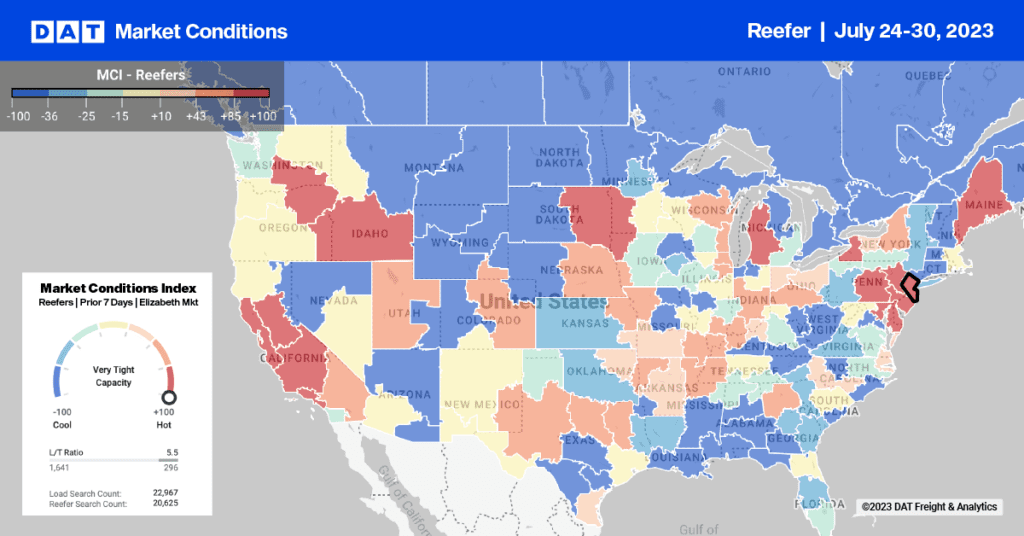Memphis is playing an increasingly vital role as a regional freight hub, and that trend is evident in this week’s van and flatbed trends. Outbound van rates rose 3.9% from the River City, for an average of $2.26, one of the highest major market rates in the country last week. Flatbeds also rocked to the Memphis Beat, with rates on outbound long haul freight at $2.87 per mile, up 1.3% in June.

Van rates trended up in Memphis, Atlanta and Stockton last week. The national average rate for vans was $1.88 per mile including fuel, represented in grey on the map. Markets with higher average rates are shown in green, and cities with lower-than average rates are red.
VAN – In addition to Memphis, rates rose 5.8% in Atlanta to $2.11, and Stockton gained 3.1% to $1.81. Philadelphia also saw a 2.3% uptick, but rates still lag at $1.64 per mile, including fuel. Declining markets include Charlotte, down 2.7% to a respectable $2.03. Chicago continues a trend of declining rates with a1.8% dip, to $1.91, just three cents above the national average.
FLATBED – Rates for flatbed moved up 3.2% in major markets, largely due to tight capacity throughout most of the country, except Miami, Seattle and the Upper Plains. Short haul rates are strongest in Harrisburg PA at $3.53 per mile, up 13%. The long haul crown goes to Memphis at $2.87 per mile, as noted above. Some of the lowest rates were found in Fort Worth, which paid an average of $1.83. If you have a flatbed there, you might want to deadhead over to Dallas, where brokers are offering $2.41 per mile, up 15%.
REEFER – It looks like some agricultural markets are in a lull between crop harvests, so reefer rates dropped sharply in select lanes last week. As the weather heated up, though, reefers were needed for non-other products, so even more lane rates rose. On balance, the national average slipped by half a percent. Rates rose in the regional hubs of Atlanta, up 6.3% to $2.18, and Fort Worth, up 8.1% to $2.22. Santa Ana (L.A.) gained 6.4% to $2.65, one of the strongest outbound rates in the country. Declining rates and volume in Phoenix and Miami indicate that harvests are done there, at least for now. Fresno and Sacramento also slipped, but Lakeland started to pick up at the end of the week, indicating new crops on their way to harvest in central Florida.


